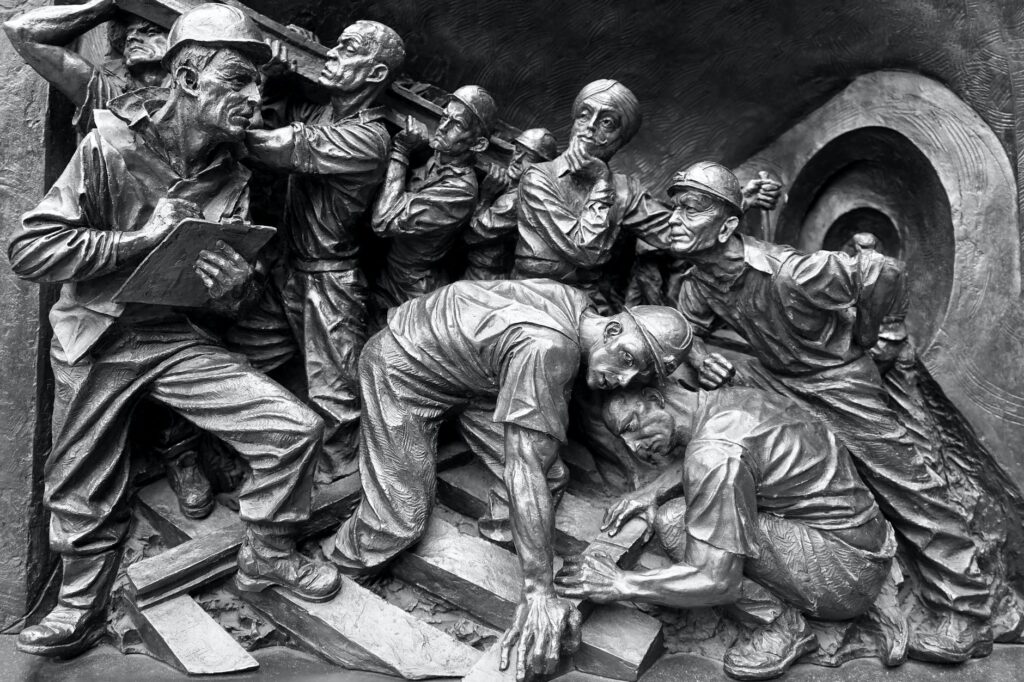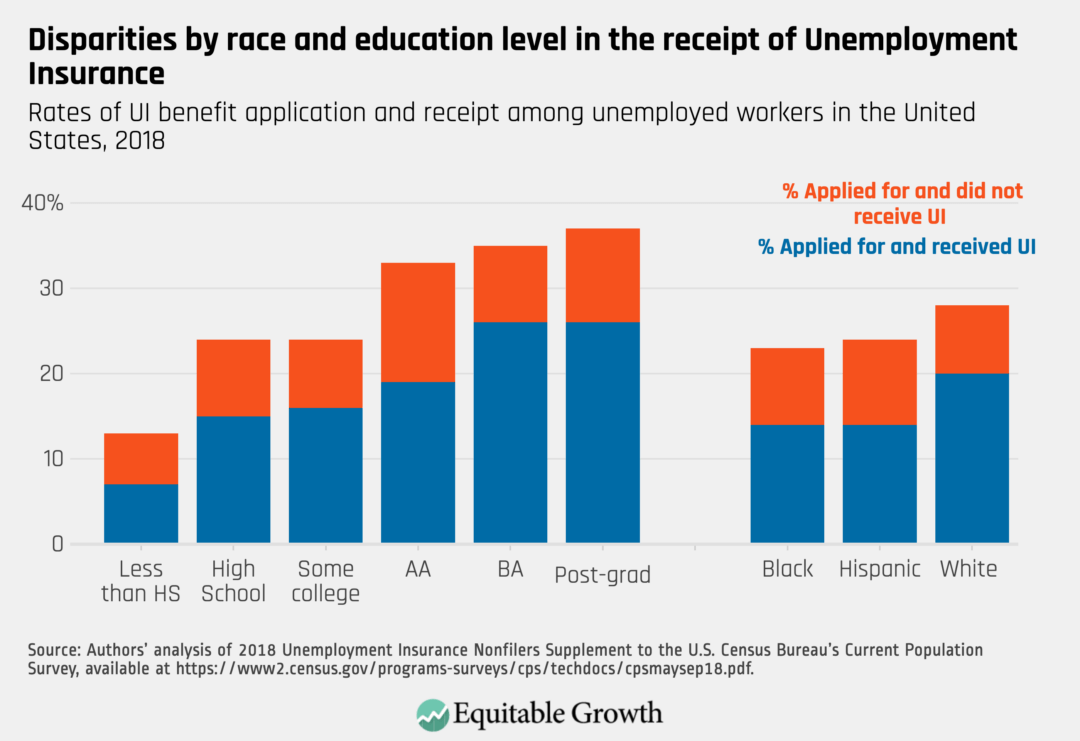
Individuals who want to work but are unable to find one can get unemployment benefits. Workers in the process of obtaining workers’ compensation claiming that they are incapacitated, yet they are seeking unemployment benefits claiming that they are physically fit and willing to work. The biggest misconception about workers’ compensation policies is that they provide unemployment benefits to workers injured on the job. Sadly, that isn’t possible. So, in this article, we’ll briefly explain how are unemployment insurance and workers compensation alike through different parameters.
The majority of insurance plans cover medical costs related to injuries sustained on the job. When employees are on medical leave, they can receive the equivalent of sick pay. A worker’s family members or dependents may also receive payments if he or she dies as a result of their employment. Before jumping into the main content, let’s get friendly with these terms for better understanding.
How are unemployment insurance and workers compensation alike
What is Unemployment Insurance?
If an insured person loses their job without apparent fault, she or he will receive unemployment benefits. A physician’s health insurance is generally provided by the government and not by private insurers; it has a limited lifespan and is not available on an ongoing basis.
Benefits Of Umeployment?

“Unemployment benefits are payments made by authorized bodies to unemployed people.” They are also called unemployment insurance, unemployment compensation, and simply unemployment. Benefits are paid for by insurance policies provided by the federal government rather than by taxes on citizens. There are different kinds of compensation for lost wages according to the jurisdictions and statuses of people. They include small sums that usually cover only basic needs or larger sums that compensate for time lost proportionally to the previous salary. Suggested read DIFFERENCE BETWEEN WORKERS’ COMPENSATION AND UNEMPLOYMENT BENEFITS.
What Is Worker Compensation?
An employee’s workers’ compensation policy provides wage replacement and medical benefits in exchange for the employee’s consent to give up the right to sue his or her employer for negligence if injured on the job.
Types Of Workers Compensation Benefits
In the event that an employee gets hurt or sick at work, workers’ compensation insurance provides them with benefits. Many states require employers to provide their employees with this kind of insurance, and most states require that they purchase it on their own.
Employees are usually covered by workers’ compensation insurance by:
- Medications
- Indemnities for disabilities
- Rehabilitative services for the jobless
- Services for the deceased and their families
Usually, workers’ compensation insurance policies don’t differ based on their coverage options. There are generally two types of workers’ compensation plans: state-funded plans and private plans available from insurance companies. Some insurance companies offer endorsements to extend coverage. Additionally, depending on where you live, your coverage and benefit requirements might differ. Read more about WHAT ARE THE FOUR TYPES OF WORKERS’ COMPENSATION BENEFITS?

General FAQs
Compensation for workers injured or disabled on the job is a system governed by the government and that pays workers money to make up for their losses. Compensation for work-related injuries and illnesses is provided to employees by workers’ compensation insurance.
1) It is defined as the cost of lost opportunities.
2) “Collecting unemployment benefits for an extended period results in the opportunity cost of not being able to grow within an organization”
3) We are now looking for candidates.
4) Mistakes that cost you money.
Workers’ compensation, as an example of a no-fault insurance system, pays claims irrespective of who was at fault. No matter who is at fault for the resulting accident, the workers’ comp insurance pays benefits, which means no matter who is at fault.
The true costs of medical bills and lost wages that an employee endures as a result of a workplace injury or illness are covered by workers’ compensation insurance. Even one major workers’ compensation claim can result in irreparable financial damage if workers’ compensation coverage is not available.
Compensation for workers has several objectives. It is fundamental for job-related accidents and diseases to be covered by a broad range of insurance policies. Most occupations or illnesses related to the workplace should be covered by workers’ compensation laws. Providing substantial income protection is another objective. Read more about how are unemployment insurance and workers compensation alike below.
Pros Of Unemployment
- Continuing your education is also possible if you are unemployed. Despite the fact that being a student while working full-time may seem overwhelming, the time away from the office can be used to earn a degree or gain new skills that can be used when finding a new job.
- A job is not a necessary requirement for discovering new interests, exploring new passions, and figuring out new career strategies.
- A job review which takes into account both positives and negatives of a previous job might be helpful for finding a better career fit. A job review which takes into account both positives and negatives of a previous job might be helpful for finding a better career fit.
- Those who qualify for unemployment benefits receive monthly payments to live on while searching for a new job. The person is paid until he finds work or his benefits expire, even though the compensation is only a fraction of what he used to earn while employed.
Cons of Unemployment
- Unemployment benefits are less expensive than what you earned before. This is perhaps the most obvious disadvantage of receiving unemployment benefits. Unemployment can add more stress to your life when you need to live on a tight budget.
- Unemployment benefits do not usually include healthcare insurance like vision or dental coverage. Without the benefits of an employer’s health plan, medical check-ups and routine dental appointments are significantly more expensive.
- You may be suspected of having a job history with gaps in employment. You will need to answer questions about gaps in employment when seeking new employment–required for receiving unemployment benefits. The last thing someone out of work wants is to make a job search more difficult.
- Read more about how are unemployment insurance and workers compensation alike below.
Concluding how are unemployment insurance and workers compensation alike
Throughout this article, we get to know about how are unemployment insurance and worker’s compensation alike? We can see the interactions between all of these benefits. Workers’ compensation lawyers can provide expert advice that cannot be substituted by an article. Those claiming workers’ compensation or receiving benefits should consult with an attorney specializing in workers’ compensation about the possibility of applying for unemployment or disability benefits and how they affect the claim. In case of any query feel free to contact us. This concludes the topic of how are unemployment insurance and workers compensation alike in 2021.

